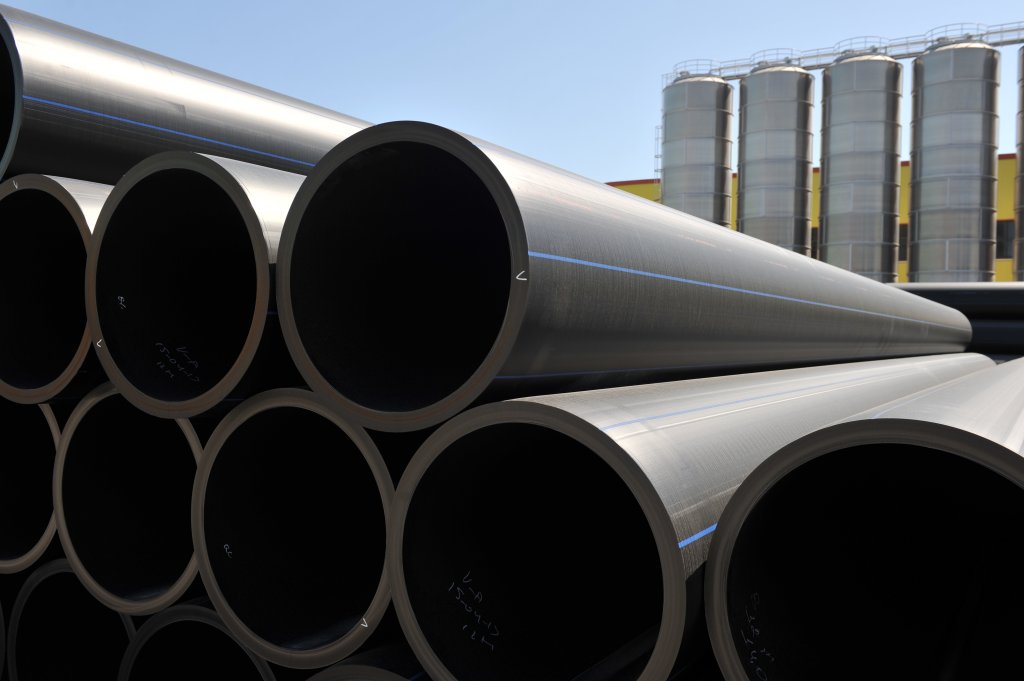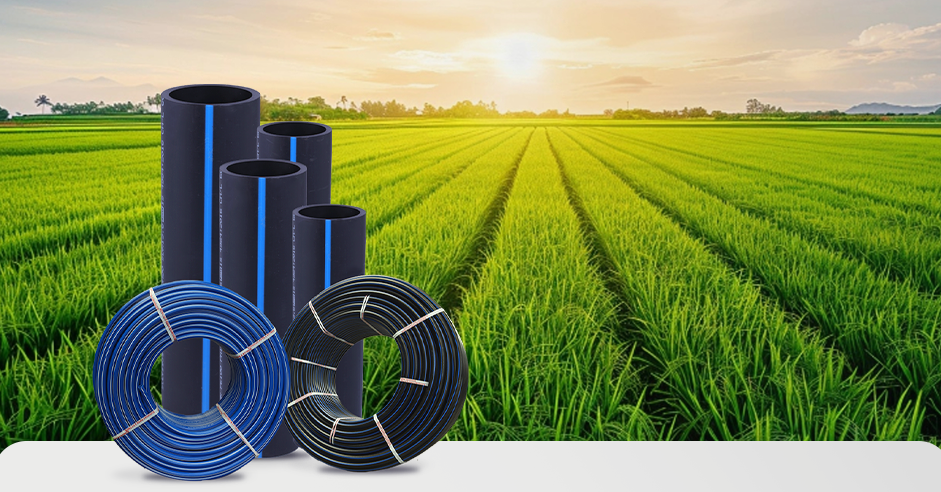American Plastics HDPE Pipe for Oilfield: Preferred in the Oilfield
Understanding the Key Benefits of HDPE Pipeline for Water and Wastewater Monitoring
The usage of HDPE pipeline in water and wastewater management offers many advantages that warrant factor to consider. Its exceptional sturdiness and long lifespan make it a recommended selection for numerous projects. Furthermore, the material's resistance to corrosion and chemical damages enhances its integrity in different atmospheres. Nevertheless, the advantages expand past simply long life and resistance. Discovering its cost-effectiveness and ecological effect reveals a lot more compelling factors for its widespread fostering in modern-day framework
Outstanding Resilience and Longevity

HDPE pipe sticks out for its remarkable toughness and long life, making it a recommended selection in water monitoring systems. Created from high-density polyethylene, these pipes can endure considerable stress and stress, making sure reliable performance gradually. Their durable nature allows them to withstand severe environmental conditions, including temperature fluctuations and dirt movements, which can create various other materials to fail.
The life-span of HDPE pipes frequently goes beyond 50 years, supplying an affordable remedy for communities and sectors alike. Furthermore, the material's light-weight buildings streamline setup, lowering labor costs and timeframes. This longevity decreases the requirement for regular fixings or substitutes, even more boosting its financial appeal.
In water administration applications, the integrity of HDPE pipes indicates fewer disruptions and enhanced service continuity, making them integral to lasting framework development. The mix of durability and long life solidifies HDPE's duty as a foundation in reliable water administration solutions.

Resistance to Corrosion and Chemical Damage
While many materials give in to corrosion and chemical damage in time, HDPE pipelines show remarkable resistance, making them perfect for different water monitoring applications. This durability comes from the molecular structure of high-density polyethylene, which is inherently non-reactive and does not rust like steels or weaken from exposure to severe chemicals. As an outcome, HDPE is highly effective in settings with aggressive materials, such as wastewater systems that may contain acids, bases, and natural solvents.
Additionally, HDPE pipes can endure environmental variables such as dirt level of acidity and saline conditions, even more boosting their viability for diverse applications (hdpe pipe suppliers Midland TX). Their capacity to preserve structural stability with time reduces the threat of leaks and failures, which is critical in ensuring the security and integrity of water circulation and wastewater management systems. The resistance to corrosion and chemical damages considerably adds to the overall efficiency and long life of HDPE piping services.
Cost-Effectiveness and Financial Benefits
When taking into consideration the monetary effects of water administration systems, the cost-effectiveness of HDPE pipelines comes to be apparent. These pipelines provide reduced setup and upkeep expenses compared to standard materials like metal or concrete. Their light-weight nature streamlines transportation and installation, causing decreased labor expenses. Furthermore, HDPE pipelines display a long lifespan, frequently surpassing half a century, which converts to fewer substitutes and lasting savings.
In addition, the resistance of HDPE to corrosion and chemical check my blog damages minimizes the demand for costly repair services and replacements. The pipelines additionally sustain efficient water circulation, lowering energy costs related to pumping systems. By alleviating leaks and water loss, HDPE pipelines contribute to significant financial benefits for municipalities and sectors alike. In general, the initial financial investment in HDPE piping can generate significant monetary returns over the life expectancy of the water administration system, making it a prudent selection for lasting facilities growth.
Ecological Sustainability and Reduced Impact

Convenience and Flexibility in Installment
Due to the fact that of their special properties, HDPE pipelines supply exceptional adaptability and versatility in installation, making them suitable for a large range of applications. Their light-weight nature enables simpler handling and transport, reducing labor prices and installment time. HDPE pipes can be bent and formed to fit different surfaces and task demands, which is especially helpful in challenging environments.
Additionally, their resistance to rust and chemical damages permits installment in varied setups without the need for specialized safety coverings. The ability to fuse joints creates a constant, leak-free system, improving the total honesty and integrity of the installation. HDPE's flexibility also accommodates ground movement, minimizing the danger of damages in locations vulnerable to changing dirt. Overall, these qualities make HDPE pipes not only versatile but likewise a favored option for water and wastewater administration systems.
Often Asked Concerns
Just How Does HDPE Pipeline Contrast to PVC in Water Monitoring Applications?
HDPE pipe provides remarkable adaptability, resistance to deterioration, and longevity compared to PVC. Its lighter weight assists in less complicated installation, while its long life expectancy reduces replacement expenses, making HDPE a favored selection in water management applications.
What Is the Life Expectancy of HDPE Piping Under Common Problems?
Under regular problems, HDPE pipelines can have a life expectancy varying from 50 to 100 years. read this article Their sturdiness and resistance to deterioration add to their long-term efficiency in various applications, making them a dependable option for infrastructure.
Are HDPE Water Lines Recyclable After Their Life Span?
Yes, HDPE pipes are recyclable after their life span. Midland TX HDPE Pipe Fittings in Stock. They can be processed and repurposed right into brand-new products, substantially reducing ecological effect and promoting sustainability within the industry, making them an environmentally friendly selection for piping options
What Is the Installment Refine for HDPE Pipeline?
The setup process for HDPE pipelines includes website preparation, trenching, pipe combination or mechanical signing up with, backfilling, and pressure screening. Proper methods guarantee a sturdy and reliable system for transferring water and wastewater efficiently.
Can HDPE Pipeline Be Utilized for Both Safe And Clean and Non-Potable Water Systems?
Yes, HDPE pipelines can be made use of for both potable and non-potable water systems. Their convenience, resilience, and resistance to rust make them ideal for various applications, guaranteeing secure and reliable transport of water in different contexts.